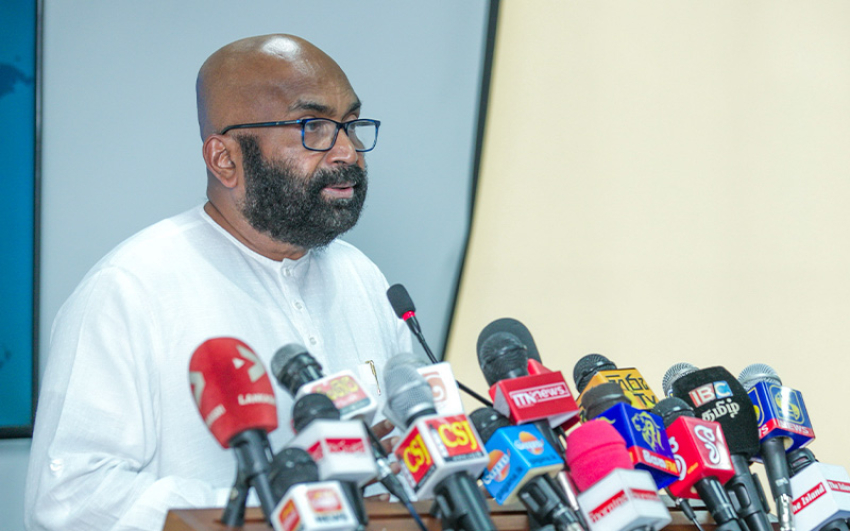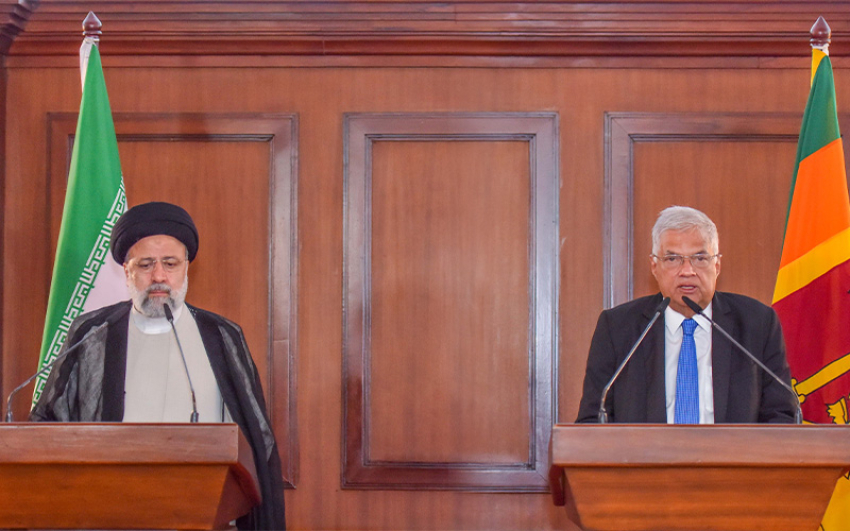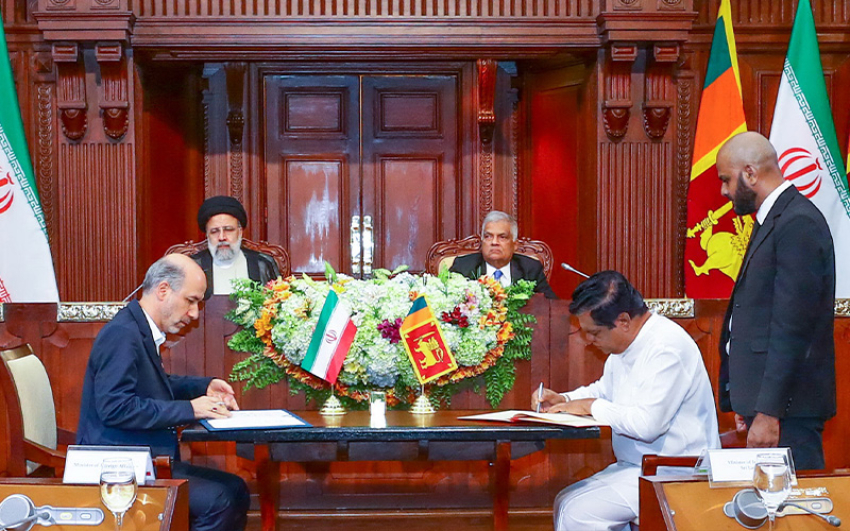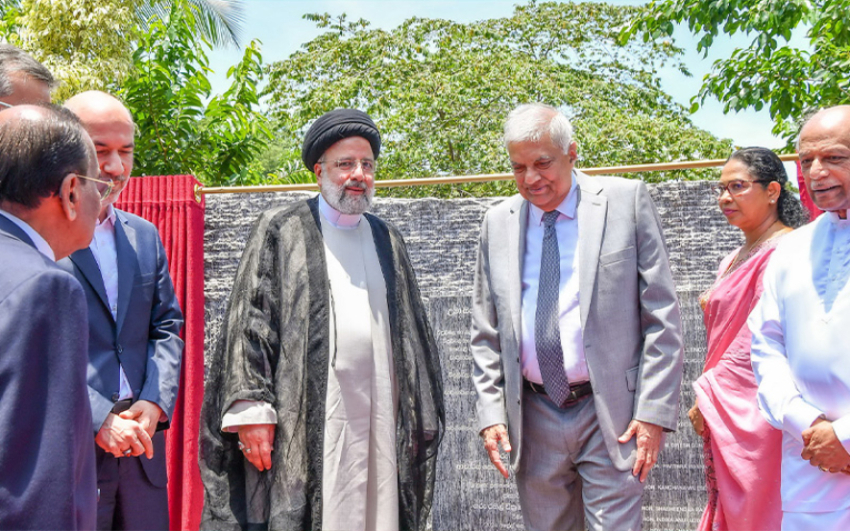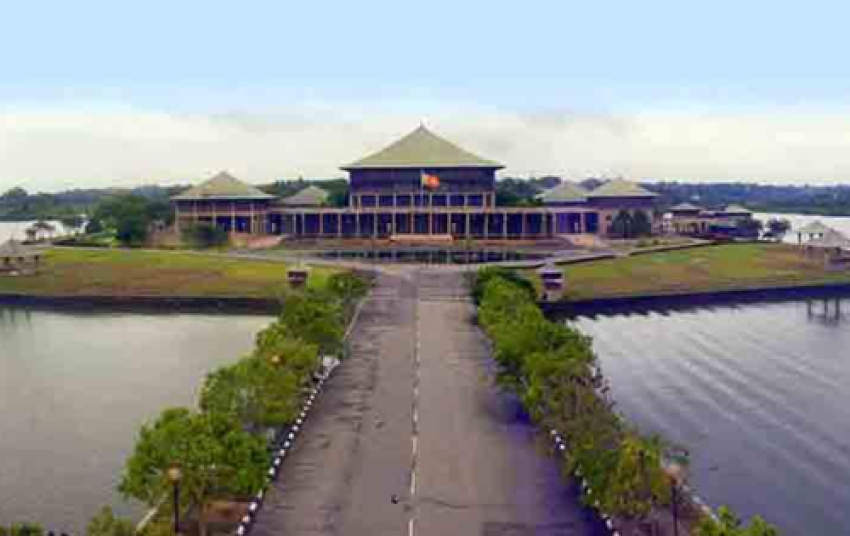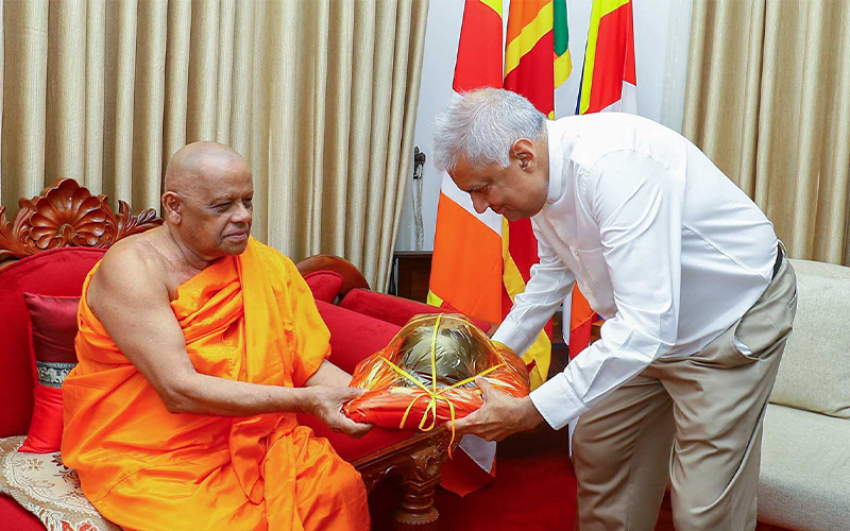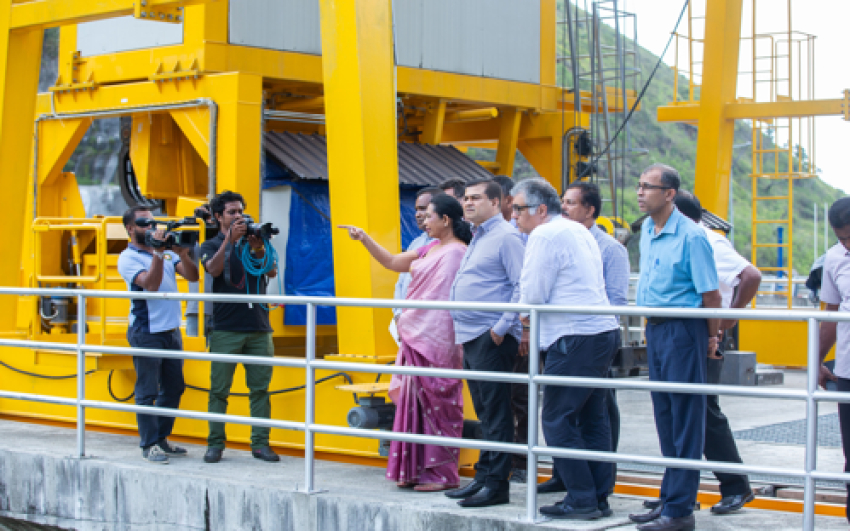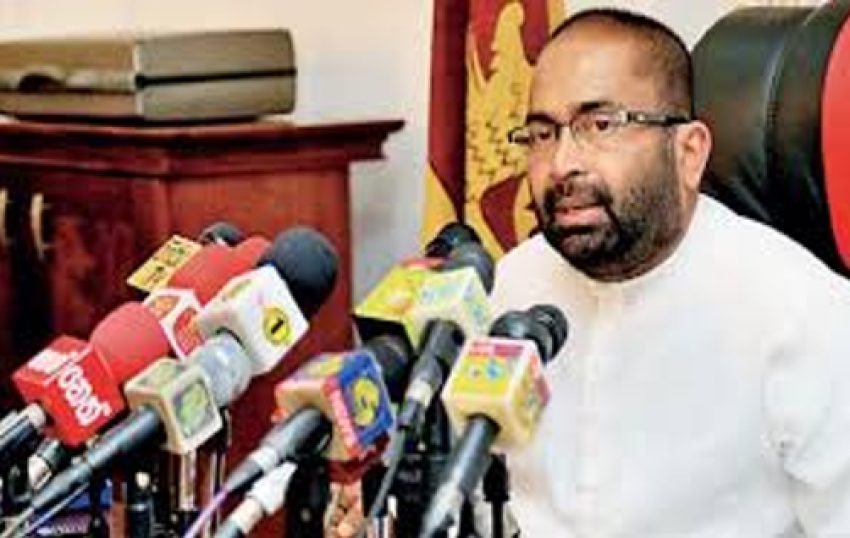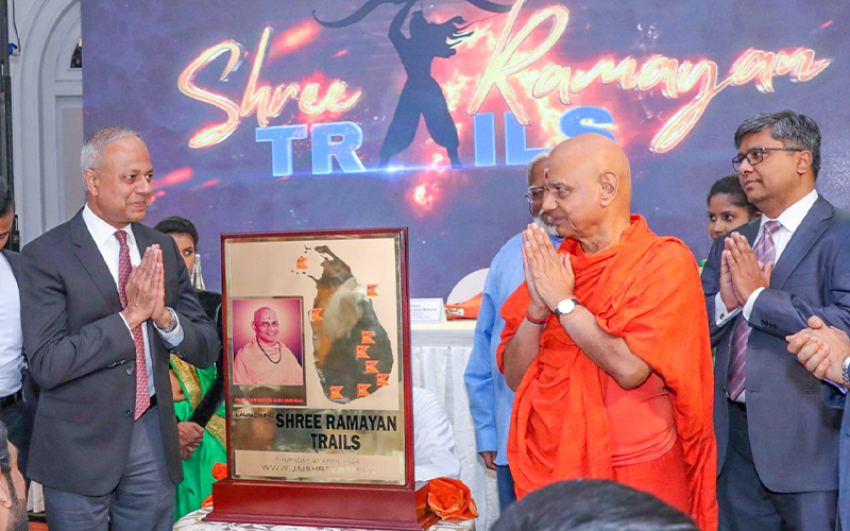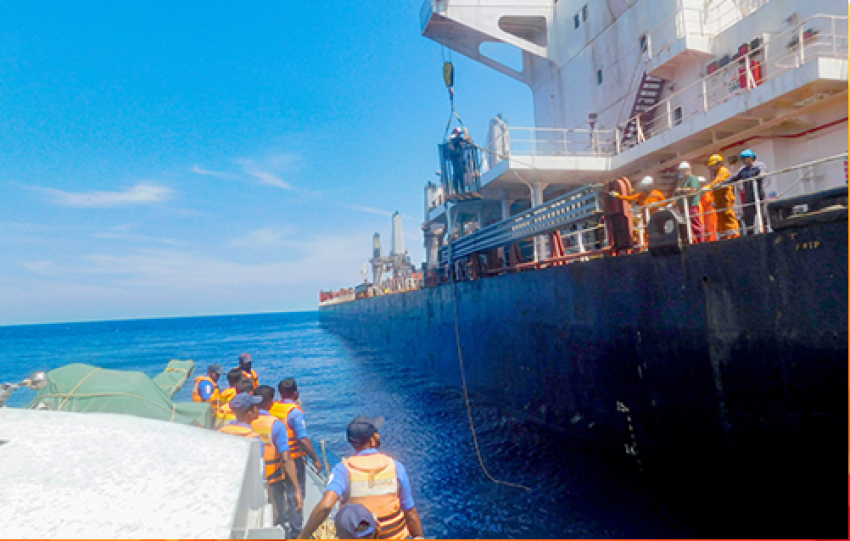The focus of world affairs this week has been on the 75th Anniversary of D-Day in Europe, which was the beginning of the defeat of Fascist and Nazi forces of Germany in World War II. Leaders of Europe, US, Canada and Australia and other countries engaged in the battle against the German forces, and the German Chancellor too, were participants in the celebrations that took place in Portsmouth in the UK and later in Normandy, France.
D-Day was the major military operation in Europe, where allied forces from many countries in Europe and elsewhere, saw the launch of the defeat of pro-Nazi fascism, with the restoration and build up of democracy. It is a day of significant record in modern history. The presence of US President Donald Trump on a State Visit to the United Kingdom coincided with his participation in D-Day commemoration events. His activities and comments in the UK during the short stay there have been highly controversial, especially with regard to contacts with possible future leaders of the UK, after Prime Minister Theresa May leaves office early next month.
Queen Elizabeth II led the D-Day commemoration events at Portsmouth where the political leaders of 16 countries involved in World War II participated. They signed a historic peace statement ahead of the anniversary events which said: “In this way we salute the surviving veterans of D-Day and we honour the memories of those who came before us”. In her address Queen Elizabeth said: “When I attended the commemoration of the 60th anniversary of the D-Day Landings, some thought it might be the last such event, but the wartime generation—my generation—is resilient, and I am delighted to be with you in Portsmouth today.”
More than 300 veterans gathered at the Portsmouth event. Hundreds more veterans, mainly from the US were sent by ship to Normandy in France, recalling the many thousand UK, US and other allied troops who went to Normandy and other locations in France on the D-Day exercise.French President Emmanuel Macron led the D-Day veterans’ events in Northern France, where hundreds of veterans had gathered in Normandy for the anniversary of the largest combined land, air and naval operation in history.
The importance of the D-Day landings in France with its contribution to the defeat of fascism and strengthening of Democracy is seen by the following facts: 156,000 allied troops landed in Normandy, across 5 beaches. Seven thousand ships and landing craft were involved with 10,000 other vehicles. Four thousand from the combined allied forces died on that day. There were 4,000 to 9,000 German casualties, and thousands of French civilians also died.
President Macron said: “This is where young men, many of whom had never set foot on French soil, landed at dawn under German fire, risking their lives while fighting their way up the beach, which was littered with obstacles and mines.” There was much criticism in the western media and from political analysts at Russia not being invited to participate in the D-Day commemorative ceremonies, considering the major defeat that Russia had imposed on the German fascist forces in Russia and Eastern Europe, which enabled the D-Day events to be carried out with success in Western Europe.
Beijing - Moscow closer
As the Western powers celebrated the D-Day anniversary, China and Moscow showed signs of moving closer, especially in the continuing and expanding disagreements with the US and the West. Chinese President Xi Jinping has described Russian President Vladimir Putin as his ‘best friend’ during a three-day visit to Moscow focusing on trade relations between the two countries. The meeting came amidst the increasing trade war between the US and China, and the worsening relations of the West with Russia over Ukraine.
China and Russia have signed several trade deals. At a press conference shortly after his arrival in Russia, Chinese President Xi Jinping said he had a “deep personal relationship” with the Russian President. “In the past six years, we have met nearly 30 times. Russia is the country that I have visited the most times, and President Putin is my best friend and colleague”, he said. In warm response, President Putin said he was ‘very pleased to say that Russian-Chinese relations have reached an unprecedented level. It is a global partnership and strategic cooperation.”
The alliance between the two countries has intensified in recent months on diverse issues related to trade between US and China, the issue of nuclear arms agreements with the US and Russia, the Russian conflict with US and Europe over Ukraine, and the US marine operations involving Chinese influence in the South China Sea. China’s ties with the US have gravely deteriorated since the Trump administration turning back on globalization in favour of economic national protectionism.
There are also US and western objections over Russia’s support of the Assad regime in Syria. With the increasing differences with the West, Russia and China have moved closer both in economic and military cooperation. This partnership has seen an increase in trade, growing by 25% in 2018, and expected to hit a record US$ 108 billion in 2019, according to the Kremlin.
The following are important aspects of the expanding trading partnership between China and Russia. China is Russia's top trading partner; Russia is China's tenth-largest trading partner. The majority of Russian exports to China are raw materials, including energy-related products. Most of Chinese exports to Russia are equipment, machinery, and consumer goods.
The Power of Siberia pipeline connecting Russia to China, due to be completed this year is reportedly valued at $400 bn. Other strategic projects include energy and infrastructure projects, as well as the construction of a passenger aircraft. China foreign direct investment into Russia hit $140 m in 2017, and Chinese companies are investing heavily in Russia's Lake Baikal region, sparking a backlash from locals over the impact on the environment and fears about Chinese influence.
Among the new business deals signed between the two countries, the Russian telecom company MTS will allow the Chinese tech giant Huawei to develop a 5G network in Russia. This is amidst the tough measures the US has imposed on Huawei, which the US claims poses a national security risk and the banning of US firms cooperating with Huawei. There was Chinese panda-diplomacy seen at this latest meeting between Beijing and Moscow, with President Xi gifting two panda bears, as a long-lasting reminder of this visit.
Trump tariffs on Mexico
President Trump has opened a new tariff raise threat to its immediate southern neighbour Mexico, warning of imposing a 5% tariff on all American imports from Mexico starting June 10. The tariffs will progressively increase to 25% by Oct 01, unless Mexico takes action to reduce or eliminate the number of illegal immigrants crossing into the US.
Mexico has been one of the beneficiaries in the ongoing U.S.-China trade war, but President Trump’s recent tariff threat could change its fortunes, according to analysts of the World Trade Organization. The trade tensions between US and China has led to both countries importing fewer goods from each other, and importers in the US have been sourcing goods from Mexico and Vietnam. The benefits to the Mexican economy will be weighed down if Trump carries out his threat to impose tariffs on all Mexican imports.
The United States imported $346.5 billion of goods from Mexico in 2018, up 10.3% from the year prior. Analysts see the threatened tariffs on Mexico adding “more fuel to the fire in the overall trade situation” facing the global economy — a view shared by many economists, with some saying it may even derail any potential deal between the U.S. and China.
The issue of ‘illegal immigrants’ is a major political slogan of Donald Trump and this latest move is seen as part of his campaigning for the 2020 Presidential Poll. The issue was a key slogan of his electoral campaign in 2016, too. However, he has so far failed to obtain funds for a proposed wall on the US-Mexican border, one of his major electoral promises in 2016, due to opposition by Democrats in the Congress. Trump also sees the tariffs on Mexican goods as a means of increasing job opportunities in the US, to keep with his slogan of Bringing Back More Jobs in the 2020 campaign.The Mexican authorities are reportedly seeking proper negotiations with the US administration, to prevent a major breakdown in economic and trade relations between the two countries.
Sudan in new crisis
The protests by Sudan’s civilians in the last two months that saw the overthrow of the dictator Omar-al Bashir (1989 - 2019) and expectations of a return to democracy, have suffered a major setback with the military attacking protestors.The Sudan Doctors’ Committee said at least 101 people had been killed and hundreds more injured across the country since Monday, although that casualty toll is expected to rise.
There have been considerable international protests on the attacks on the protestors, and calls for steps to restore the pro-democracy movement, led by the country’s professionals. With the civilian protestors threatening to continue protests, despite violence by the military, there are some indication that a section of the military is thinking of resuming negotiations to restore democracy. The protestors have rejected the surprise announcement of a national election to be held in nine months time, without a proper negotiated process to restore democracy. Amid the surge in violence, Sudanese protest leaders dismissed calls from the military for a fresh round of talks, saying the army was “not serious” about negotiations while troops continued to shoot and kill protestors.
The protestors said this week was the bloodiest eruption of violence since pro-democracy demonstrations succeeded in forcing the military to remove Sudan’s longtime strongman, Omar al-Bashir from power in April. Since then, the movement has maintained a sit-in and demanded that the generals hand over authority to civilians. The crisis continues with international pressure bringing hope for success to protestors.



